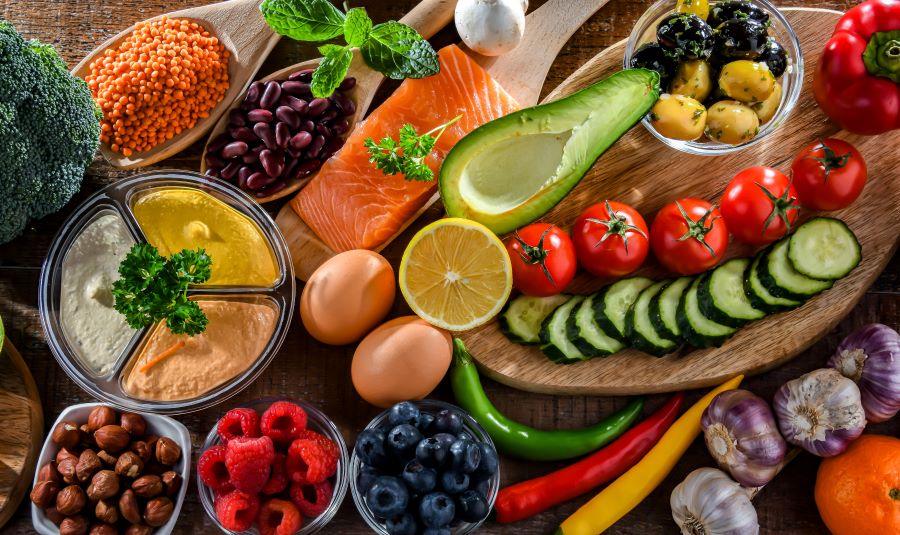Neuroplastic Nutrition: Rewiring Your Brain Through Diet
Can what you eat actually change the structure of your brain? Emerging research suggests that our dietary choices may have a profound impact on neuroplasticity - the brain's ability to form new neural connections and adapt throughout life. This groundbreaking field of neuroplastic nutrition explores how specific foods and eating patterns can potentially enhance cognitive function, emotional regulation, and even help rewire detrimental thought patterns.

The Science Behind Neuroplastic Nutrition
At its core, neuroplastic nutrition is based on the premise that certain nutrients and dietary compounds can modulate neuroplasticity - the brain’s ability to reorganize itself by forming new neural connections. This process occurs throughout our lives, allowing us to learn, adapt, and recover from injuries. Key factors that influence neuroplasticity include neurotrophic factors like brain-derived neurotrophic factor (BDNF), neurotransmitter levels, inflammation, and oxidative stress.
Various nutrients have been shown to impact these neuroplasticity-related factors. For example, omega-3 fatty acids, particularly DHA, are crucial for maintaining neuronal membrane fluidity and supporting synaptic plasticity. Antioxidants like flavonoids can reduce oxidative stress and inflammation in the brain, potentially enhancing neuroplasticity. Additionally, certain amino acids serve as precursors for neurotransmitters involved in learning and memory formation.
Key Nutrients for Neuroplasticity
Emerging research has identified several nutrients that may play a particularly important role in supporting neuroplasticity:
-
Omega-3 fatty acids: Found in fatty fish, walnuts, and flaxseeds, omega-3s are essential for neuronal membrane health and synaptic plasticity.
-
Flavonoids: These potent antioxidants found in berries, cocoa, and green tea may enhance neuroplasticity by reducing oxidative stress and inflammation.
-
Curcumin: The active compound in turmeric has been shown to increase BDNF levels and promote neurogenesis in animal studies.
-
Choline: This essential nutrient found in eggs and liver is crucial for acetylcholine production, a neurotransmitter involved in learning and memory.
-
Magnesium: Important for synaptic plasticity and neuroprotection, magnesium is found in leafy greens, nuts, and whole grains.
Dietary Patterns and Neuroplasticity
Beyond individual nutrients, certain dietary patterns may be particularly beneficial for promoting neuroplasticity. The Mediterranean diet, rich in vegetables, fruits, whole grains, and healthy fats, has been associated with improved cognitive function and reduced risk of neurodegenerative diseases. Intermittent fasting and caloric restriction have also shown promise in animal studies for enhancing neuroplasticity and protecting against age-related cognitive decline.
Conversely, diets high in processed foods, sugar, and unhealthy fats may have detrimental effects on neuroplasticity. Chronic consumption of these foods can lead to inflammation, oxidative stress, and insulin resistance - all of which can impair the brain’s ability to form new neural connections and adapt.
Practical Applications of Neuroplastic Nutrition
The emerging field of neuroplastic nutrition holds exciting potential for various applications:
-
Cognitive Enhancement: By incorporating neuroplasticity-promoting foods, individuals may be able to support lifelong learning and cognitive performance.
-
Mental Health Support: Dietary interventions targeting neuroplasticity could potentially complement traditional treatments for conditions like depression and anxiety.
-
Addiction Recovery: Neuroplastic nutrition strategies may help support brain rewiring during addiction recovery processes.
-
Stroke Rehabilitation: Optimizing nutrition for neuroplasticity could potentially enhance recovery and neuronal rewiring after stroke.
-
Healthy Aging: Supporting neuroplasticity through diet may help maintain cognitive function and adaptability as we age.
Neuroplastic Nutrition: Tips for Brain-Boosting Eating
-
Prioritize omega-3 rich foods like fatty fish, walnuts, and flaxseeds
-
Incorporate a variety of colorful fruits and vegetables for antioxidants
-
Include sources of choline like eggs and leafy greens
-
Experiment with intermittent fasting under medical supervision
-
Minimize processed foods, added sugars, and unhealthy fats
-
Stay hydrated to support optimal brain function
-
Consider adding turmeric to your diet for its curcumin content
-
Opt for whole grains over refined carbohydrates
-
Enjoy dark chocolate or cocoa in moderation for flavonoids
-
Maintain a balanced diet with adequate protein, healthy fats, and complex carbohydrates
As research in neuroplastic nutrition continues to evolve, it offers a promising avenue for supporting brain health and cognitive function through dietary choices. While more studies are needed to fully understand the complex relationship between nutrition and neuroplasticity, the current evidence suggests that mindful eating may indeed have the power to reshape our brains. By incorporating neuroplasticity-promoting foods and dietary patterns, we may be able to enhance our cognitive resilience, support mental health, and maintain brain adaptability throughout life.






